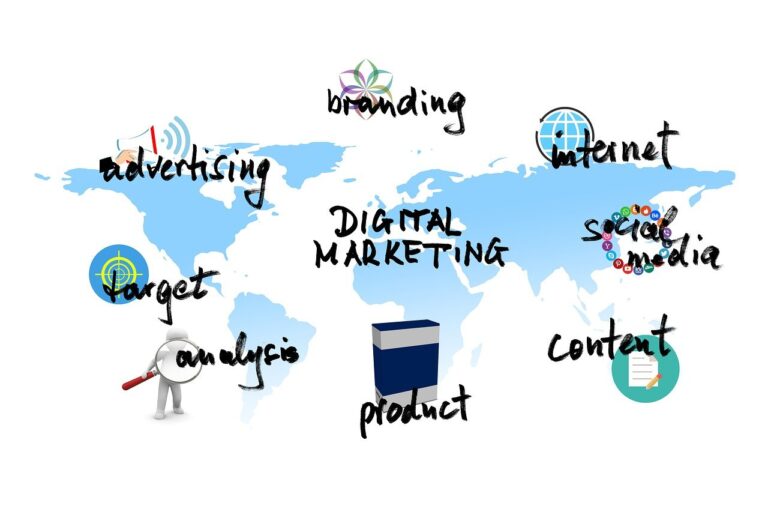
In a world driven by rapid technological advancement, digital marketing is evolving faster than ever. To thrive in the competitive landscape of 2025, businesses must adapt to emerging trends and redefine their strategies. Let’s explore the digital marketing trends poised to shape the future and unlock tomorrow’s success.
1. AI-Driven Hyper-Personalization
Artificial Intelligence (AI) has evolved into an indispensable tool for marketers. In 2025, AI will redefine customer engagement by offering hyper-personalized experiences. Through advanced data analytics, businesses can craft bespoke content, personalized recommendations, and targeted advertisements that align with individual preferences. This precision helps brands connect deeply with their audience, fostering loyalty and boosting sales.
For example, intelligent chatbots will provide real-time support with a human touch, enhancing satisfaction and streamlining the buyer’s journey.
2. Growth of Voice and Visual Search
Voice and visual search technologies are changing the way people interact with content. As voice assistants and image-recognition software gain traction, optimizing for these searches is crucial. Voice queries demand conversational and question-based keywords, while visual search requires well-tagged and visually appealing images. Brands that adapt their SEO strategies to these tools will ensure greater visibility and relevance in search results.
3. Sustainability-Centric Campaigns
The modern consumer is increasingly eco-conscious, favoring brands that demonstrate environmental responsibility. In 2025, incorporating sustainability into marketing efforts will be a priority. Transparent communication about eco-friendly initiatives, from packaging to production processes, will resonate with audiences. Highlighting green practices not only enhances brand image but also builds stronger connections with environmentally aware customers.
4. Social Media Commerce Revolution
Social platforms are evolving into dynamic marketplaces. Features like live shopping, in-app purchases, and shoppable posts are becoming standard. By leveraging these tools, brands can convert casual scrolling into meaningful transactions. Creating engaging, interactive content that blends seamlessly into users’ social experiences will be key to maximizing sales.
5. Immersive AR and VR Experiences
Augmented Reality (AR) and Virtual Reality (VR) are set to redefine customer interactions. These technologies enable brands to offer immersive experiences, such as virtual product try-ons or interactive brand narratives. Imagine a furniture retailer using AR to let customers visualize a sofa in their living room before purchase—this level of interactivity drives engagement and trust.
6. First-Party Data in a Cookieless World
With third-party cookies phasing out, marketers must prioritize ethical data collection. First-party data, gathered through direct customer interactions, will take center stage. Building trust by offering value in exchange for data—such as through surveys, loyalty programs, and exclusive content—will empower businesses to create impactful campaigns.
7. Micro-Influencers as Authentic Advocates
Consumers are turning to niche influencers for authentic recommendations. Micro-influencers, with smaller but highly engaged followings, provide a level of trust that big names can’t match.
Partnering with influencers aligned with brand values will enable businesses to reach their target audience effectively.
8. Diversifying Content Formats
In 2025, content diversity will drive audience engagement. From snackable short-form videos to in-depth podcasts and webinars, brands need to offer a range of options. Platforms like TikTok and Instagram will dominate with creative, bite-sized content that captivates users instantly.
9. Seamless Omnichannel Experiences
Providing a unified experience across all customer touchpoints is more critical than ever. Omnichannel marketing ensures consistent messaging across websites, apps, social media, and offline interactions. By analyzing customer journeys, businesses can identify gaps and optimize every step of the user experience.
10. Blockchain for Marketing Transparency
Blockchain technology will bring trust and accountability to digital marketing. From verifying ad metrics to ensuring secure transactions, this innovation will reduce fraud and enhance transparency. Smart contracts could simplify advertising agreements, creating a more secure and efficient ecosystem.
Conclusion
2025 will demand that marketers embrace agility, innovation, and sustainability. By aligning strategies with these emerging trends, businesses can create impactful, future-ready campaigns. The focus will shift to blending cutting-edge technologies with human-centric approaches, ensuring meaningful and memorable customer experiences.
